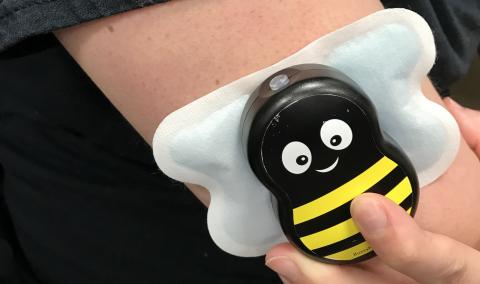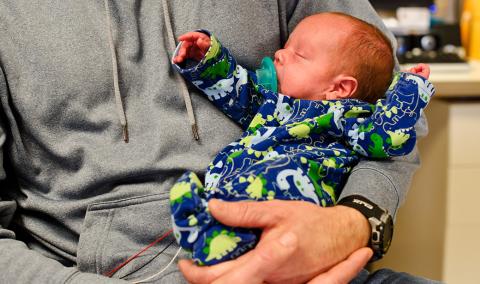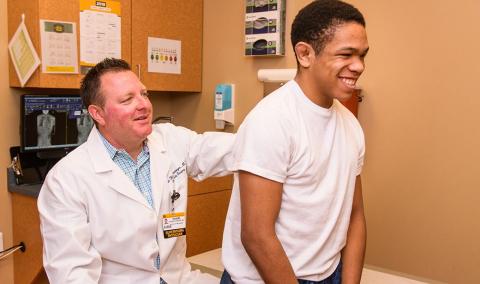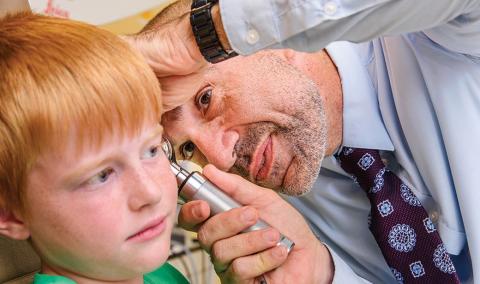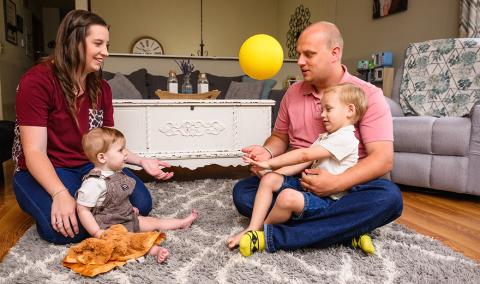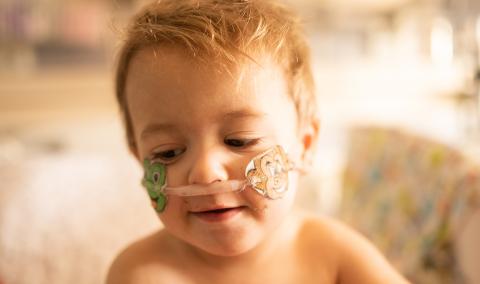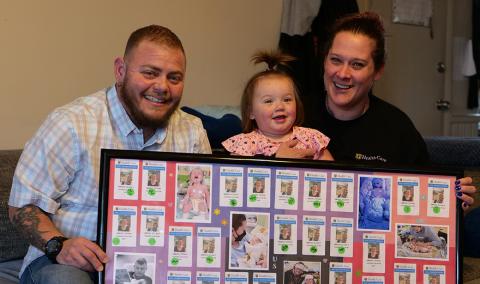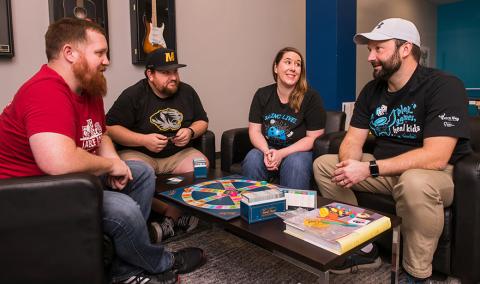Hypospadias occurs when the urethra does not properly grow in the penis. As a result, the urethral hole (or meatus) will appear on the underside of the penis instead of at the tip.
There are two types of hypospadias:
- Distal hypospadias, which occur close to where the head of the penis (glans) and body of the penis (shaft) meet.
- Proximal hypospadias, which occur close to where the shaft meets the scrotum. The farther the urethral hole is from the tip of the penis, the more severe the hypospadias is.
Hypospadias does not cause pain or block urine from exiting the body, but it can cause urinary incontinence, sexual disfunction and infertility. Furthermore, it can cause chordee — a condition in which the penis is bent downward — and it often causes the underside of the foreskin to not properly grow. However, a circumcision should not be performed at birth if your child has hypospadias, as the foreskin may be used during surgery to repair his penis.
Will my child require surgery for hypospadias?
Unless the hypospadias is very minor, MU Health Care’s pediatric urology team strongly recommends scheduling a surgery to repair this condition.
To repair hypospadias, we sedate your child and use tissue from near the end of his penis to create the missing urethra. Distal hypospadias patients often go home the same day as their procedure. Proximal hypospadias can be more difficult to repair, and patients sometimes require a follow-up procedure after the first surgery.
Before surgery, your child might be prescribed testosterone cream. Applying it to his penis will result in short-term growth, providing the surgeon with more tissue and better blood supply.
Once hypospadias is repaired, most boys have normal penile function and a normal look. Long-term studies show that boys also excel emotionally after this procedure.
Related Conditions & Treatments
- Adolescent Medicine
- Chest Wall Deformities
- Down Syndrome
- Emergency Care for Kids
- Gastrostomy and Feeding Access Program
- Hyperbaric Oxygen Therapy
- Juvenile Diabetes
- Neonatology
- Pediatric Anesthesiology
- Pediatric Cancer
- Pectus Carinatum
- Pectus Excavatum
- Pediatric Cardiology
- Pediatric Dermatology
- Pediatric Development and Behavior
- Pediatric ENT (Ear, Nose and Throat)
- Pediatric Epilepsy
- Pediatric Eye Care
- Pediatric Gastroenterology
- Pediatric Infectious Diseases
- Pediatric Inpatient Rehabilitation
- Pediatric Nephrology
- Pediatric Neurology
- Pediatric Neurosurgery
- Pediatric Orthopaedics
- Pediatric Plastic Surgery
- Pediatric Primary Care
- Pediatric Psychiatry
- Pediatric Pulmonary Medicine
- Pediatric Sleep Medicine
- Pediatric Surgery
- Pediatric Surgical Services
- Pediatric Urology
- Pediatric Vascular Anomalies
- Pediatric Weight Management
- Sickle Cell Disease
- Aerodigestive Program





